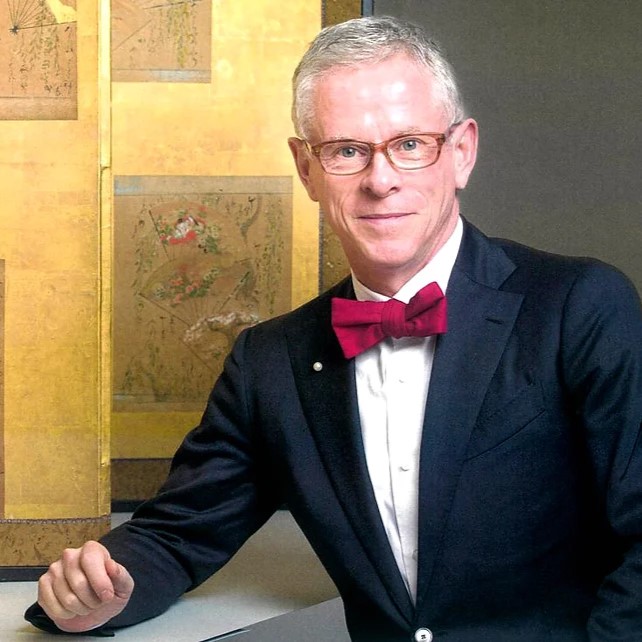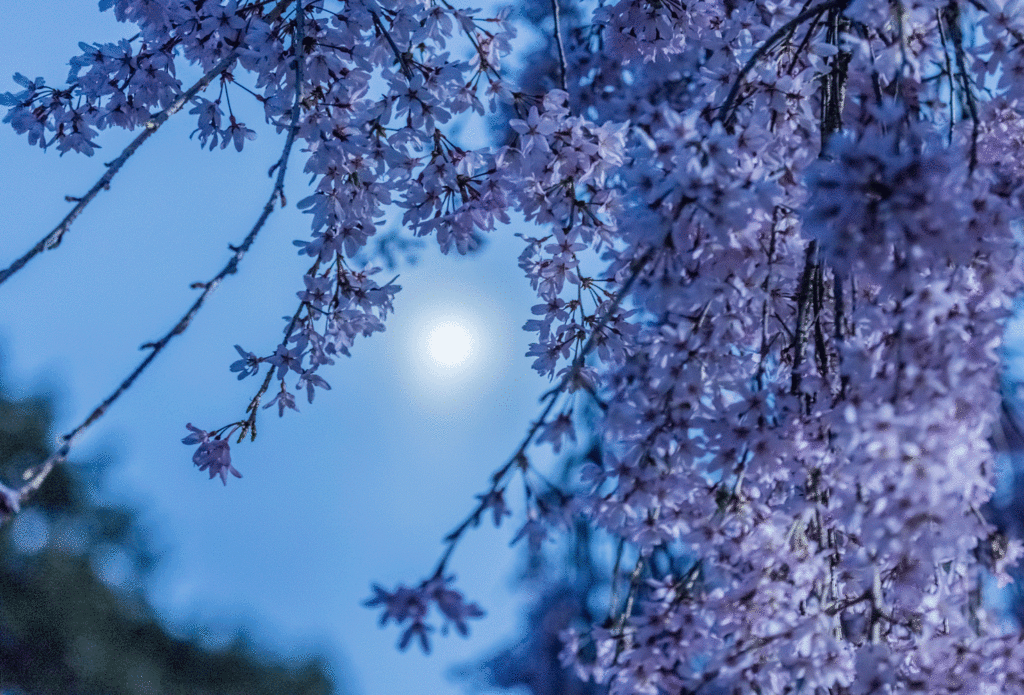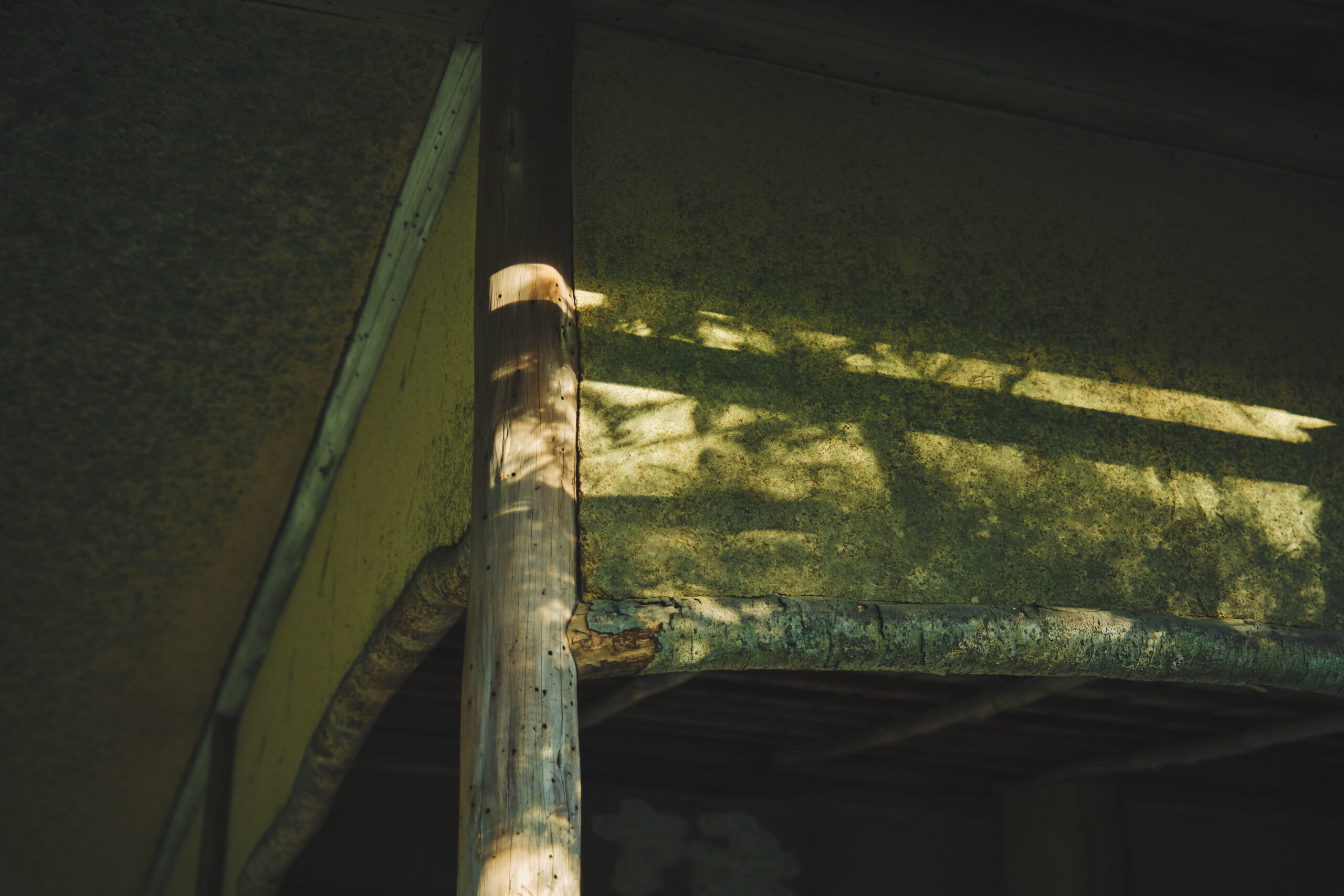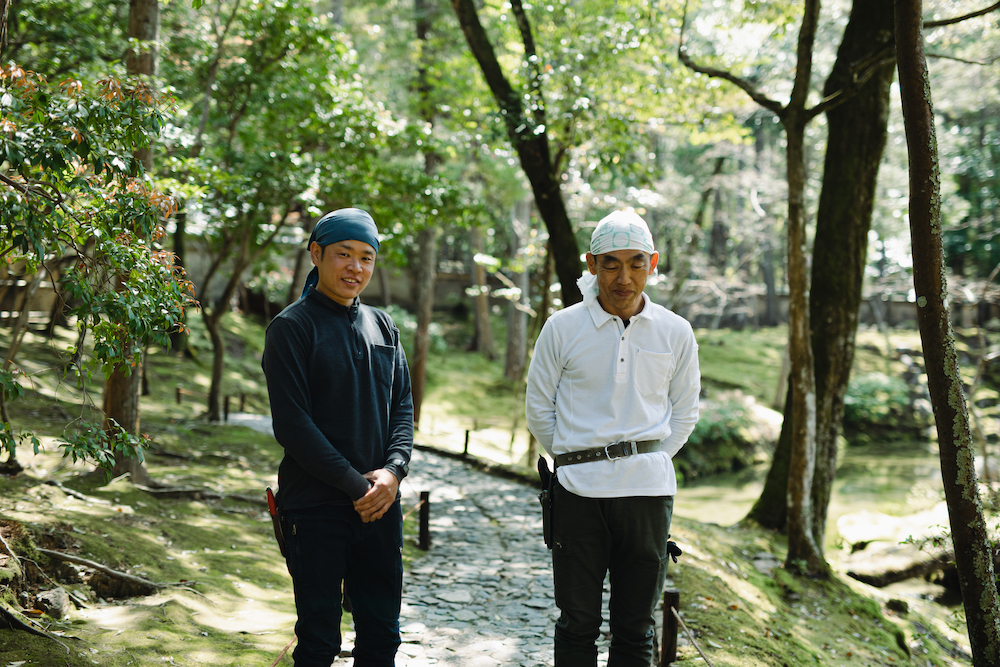2024.12.20
Winds of Gold—One Hundred Views of Saihoji Vol. 8
Peter MacMillan / a translator, scholar, poet
In this series of essays on Saihoji the renowned translator of Japanese poetry and poet Peter MacMillan records his impressions of and reflections on his visits to the garden throughout the four seasons. We hope that through these essays you the readers and fans of Saihoji can feel as if you are also present in the magical garden even when you cannot visit us.
Golden Rays
On my October visit to Saihoji, Mr Fujita the Vice Head Monk had a big smile on his face when I arrived at 8am and gave special care in arranging the zazen for me before taking my walk around the garden. It was just four days to Culture Day when the announcement that I had been awarded the Order of the Rising Sun Gold Rays with Rosette was going to be made. It was certainly the greatest honor of my life, and I was so humbled to receive it, and I knew it was made possible because of all those who have supported me for so long, not least of which is Saihoji. I really wanted to share this happy news with my patron from Saihoj, but there were strict rules that I could not disclose the award until the date, so I set off on my walk in the beautiful autumn morning.
I had not taken but a few steps when it seemed as if I was looking at the garden for the first time, and I realized that somehow the award would change my life forever, even the way I look upon my beloved Saihoji. For instead of feeling that it was a reward for some achievement to date, I felt like it was the world saying you are on the right path, but you can do more, and we are giving you the license to do it. I felt neither a sense of completion nor ending but rather a new beginning in my life, and I felt emboldened to make even greater efforts to disseminate Japanese culture.

Then I looked around and noticed that Mr. Fujita was still standing there watching over me, smiling. I blushed and went back closer to him and said, “I want to share some good news with you soon.” He laughed and asked me “Is it about a new journey? After all this is the garden of origins and journeys.” He was teasing me that because I had thought up the sub-name for the garden in English—The Garden of Origins and Journeys— that maybe I was going to make a new journey. I gulped down and stayed silent, but in my heart, I was thinking “Exactly.”
So he returned to the temple, and I continued on my walk, thinking that the name that I had chosen for the garden had taken on a completely new meaning for me on my own personal journey. The award allowed return to the origin of my own journey into the world of Japanese culture many decades ago. It was not an easy road at any time because it is so hard to make people understand the importance of classical literature and culture and feel a love for it. Indeed, I had many hardships, and many people tried to block my way, but each difficulty that I survived only served to make me stronger and even to feel thanks to the people who caused those difficulties.
The autumn was deepening at last and the whole garden seemed like a magical brocade of greens and reds and yellows, both gorgeous and new. Then I came to the spot where I looked over the pond to where there is an old small boat tied to the shore. It was imagining that that small boat could go anywhere that gave me the idea of the “journeys” part of the sub-name for the temple. And as I was looking at it a tiny kingfisher suddenly alighted on the boat for just a few seconds and its dazzling blues reflected on the waters of the pond enhancing the beauty of the autumn brocade. As it took flight, I caught a glimpse of its silken orange chest feathers reflecting like golden rays on the water. It seemed like a miraculous sign from the garden saying, “Take Flight, the garden, the universe is always on your side. You can at any time return to your own origin, and you can start anew at any time on a great journey.” And I knew that the bird wanted me to let you the readers know that it was a message not only to me but to you and each and every reader, too.
Peter MacMillan
Peter MacMillan is a prize-winning translator, scholar, poet, and President of The Moon is a Boat Co., Ltd.
His translation, One Hundred Poets, One Poem Each (Hyakunin Isshu), was published in 2008, winning prizes in both Japan and the United States. After that, he completed an English translation of The Tales of Ise (Ise Monogatari), which was published by Penguin in 2016. He has also published a collection of poetry entitled Admiring Fields.
Awards:
Recipient of the Donald Keene Center Special Prize for the Translation of Japanese Literature
Recipient of the 44th Special Cultural Translation Prize from the Japan Society of Translators
Nominated for the PEN Award for Poetry Translation for the English translation of The Tale of Ise (Ise no Monogatari)







